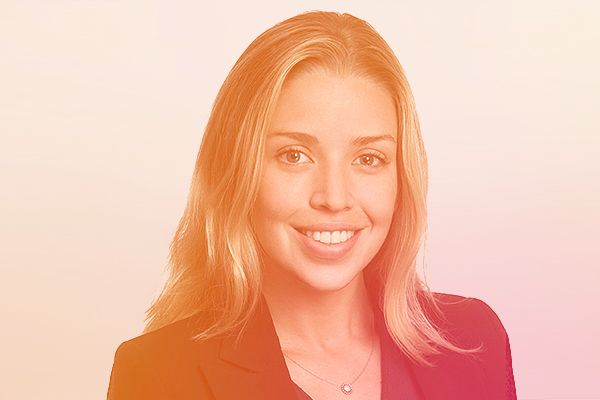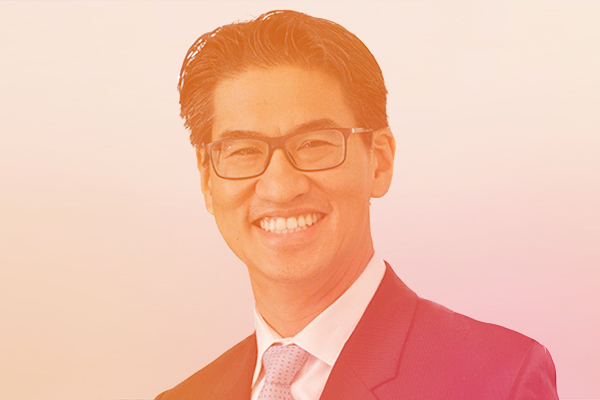

Hamish Corlett is the only stock picker in the history of the Sohn Hearts & Minds Investment Conference to pitch exactly the same company twice.
On Friday, the founder of TDM Growth Partners doubled down on his conviction pick for 2019.
It is Spotify.
“It was about US$140 ($197) when we pitched it two years ago. Now it’s US$225” Corlett told The Australian.
“With the tech market and sell off in general it’s gone from 300 to 225. It’s even better value now than a week ago when I did the pitch.”
Two years ago at the Opera House Corlett began his ten minutes with ACDC. This time, he kicked off with the last slide from his first pitch where he predicted Spotify will become the S in FAANGS (Facebook, Apple, Amazon, Netflix and Google).
“A lot has changed” he said in another pitch perfect pitch “including the names of Facebook and Google which completely F…s up the acronym, but one thing that hasn’t changed is our belief that Spotify will become one of the leading consumer internet businesses of our generation.”
It’s a bold call and Corlett is just as bullish today as he was first time around. The giant music disruptor is performing well against his 2019 prediction that over the next five years returns would be 25 per cent to 40 per cent.
“Our return expectations have gone up I would say. We are on track. Even from US$140 two years ago to US$225 we are above the 25 per cent. We have a ten year view on this. Spotify is one of the few businesses where we think we can compound capital with a reasonably high degree of conviction at 25 per cent or better over ten years.”
TDM has $2bn under management and only owns up to 15 fast growth businesses, deploying between $50 and $250mn. Spotify has been is a core position since shortly after its IPO.
In his pitch, Corlett compares Spotify with the FAANG stocks when each was at Spotify’s current market capitalisation of US$50bn. In every case he argues the market drastically underestimated both revenue and earnings before interest tax depreciation and amortisation over the next five years. All beat consensus forecast by 15 to 125 per cent.
“Given all were trading at reasonable prices at the time, they were all compounding machines generating 5 to 10 times your money over the five years” he said in the pitch.
Corlett again pushes the potential for the ‘free’ side of the Spotify fermium model with the growth in advertising.
“Covid had a temporary impact on the ad market and Spotify was in that mix. But it’s come out firing and is now a €1bn business, growing at 75 per cent per annum.”
“Our argument to the company is this advertising opportunity is huge for you. We find it hard to understand why if doesn’t get to 30 or 40 per cent. Now they are starting to talk about 30 or 40 per cent. It’s early days. We think the market is going to Euro10bn” he told The Australian.
Corlett also talks investment risk and anyone following the pop diva Taylor Swift would understand why. Swift is so angry with her record label and so powerful as a brand on social media that she has taken on the music industry by re-recording her songs in a new Album called Red.
Spotify now has 400 million users worldwide. “That will be over a billion users in 5 years’ time. The demand aggregation side they have done really well” said Corlett. “Where they really need to focus, and it is a key determinant and a key risk to their success is how well they serve creators.”
“Obviously Taylor Swift is up one end of the extreme. She is a courageous pioneer and she is showing what can be done if you don’t serve creators, if you don’t treat them fairly if you don’t help them to monetise” he said.
Corlett says this challenge is not limited to music. He points to journalism with Substack.
“What Spotify has to do and what we are backing them to do is help creators of all sorts and specifically audio creators, to grow, manage, monetise and support them in whatever way possible. That could be in audio books, in podcasts, in music, or in live audio. You can expect a huge amount of innovation happening in audio but also this huge increase in supply side as more creators are supported to make a living off their work” he said.
The other risk Corlett stresses is Web 3.0, the very new but fast moving world of Blockchain, Crypto and non fungible tokens or NFTs.
“Web 3 is changing and will change the underlying substrate of many industries and we think music is one of them” he said. “It’s not going to happen overnight but it will happen and so Spotify needs to position itself in a Web 3 world. It goes back to the Taylor Swift thing but essentially it is giving ownership and more control more rights back to the creators.”
So does this mean Spotify has to start buying NFTs? Corlett says there will be many twists and turns and so far Spotify has been pretty cagey about how the business will play things which is understandable.
“This is evolving rapidly and they need to play their cards carefully. We are backing the management team and the culture of the organisation to adapt and be able to make the right strategic and tactical moves to deal with these types of changes. And over time we have more conviction that Daniel Ek is the right person to take the organisation on the next phase of the journey.”
Corlett investment philosophy is grounded in his focus on people and culture in an organisation. ‘We are probably on the board of half the companies that we own. We are really involved” he said. “As long term business owners, that is the thing that cause the successes and the heartaches and the problems and as board members that is what we spend all our time on.”
He says by the time TDM meets a new management, commercial and industry analysis is done and the questions for managers are around how behaviour is governed in the organisation.
“Does it have any sort of meaning in terms of how decisions are made an accountability? Are people compensated in line with the values in a real way? We do much more work now speaking to ex-employees and looking at compensation plans. Understanding the authenticity is key.”
Like many conviction investors, Corlett marvels at the market’s pumped up valuations in growth stocks, paying 40 or 60 times revenue. In one sense he says the firm has been wrong exciting positions when it felt they got too expensive, but the stocks kept rising. But Corlett and his team grew up as value investors.
“We grew up on Ben Gray, and Phil Fisher, Buffet and Munger and Peter Lynch and so we have a certain way of investing that has worked well for us.”
This strategy, say Corlett has enabled TDM to compound at 25 to 30 per cent for the last 17 years. “But that means that we are really disciplined when it comes to price and we not participated in a lot of those lofty valuations and let it ride. Spotify is a good example of a really high quality business where we find value but with prices coming back things are much more attractive to us.”
Last year at Sohn Hearts & Minds, Corlett sensationally pitched Slack Technologies which was taken over by Salesforce almost immediately after the conference closing. It gave the HM1, the listing investment company that was created form the conference and donates to charity a return of 61 per cent in just three weeks.
This article was originally posted by The Australian here.
Licensed by Copyright Agency. You must not copy this work without permission.


Eleanor Swanson of Firetrail Investments sat down with Equity Mates Media ahead of this year's conference. Eleanor shares the story of her first investment, breaks down the small cap landscape and shares some of the best companies that she's come across during her time in the markets.


Yen Liow of Aravt Global sat down with Equity Mates Media ahead of this year's conference. Yen shares the story of his first investment, Aravt's investment philosophy, his thoughts on the future of the payments industry and why he's excited to be a part of the Hearts & Minds family.


Hearts and Minds Investments Limited (ASX:HM1)'s Chief Investment Officer Rory Lucas and founding Hearts & Minds supporter Phil King of Regal Funds Management recently spoke with the hosts of You're In Good Company, an Equity Mates Media podcast. They discuss all things Hearts & Minds including the upcoming Conference, HM1 and what's involved as a Core and Conference Fund Manager. Phil also shares why he's proud to be part of the Hearts & Minds family, Regal's investment approach and explains what Alternative and Short investing is.


Warren Buffett’s right-hand man Charlie Munger is the headline act at Sohn Hearts and Minds this year and the 97-year-old investment legend is expected to offer forthright views on global financial markets which are now at a critical juncture.